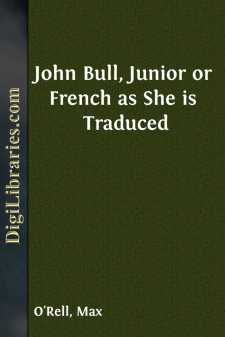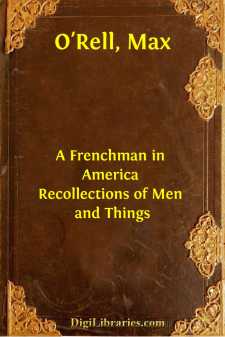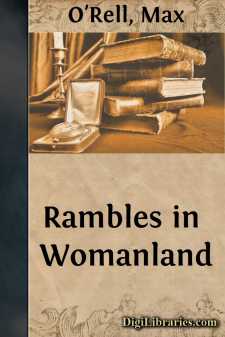Categories
- Antiques & Collectibles 13
- Architecture 36
- Art 48
- Bibles 22
- Biography & Autobiography 813
- Body, Mind & Spirit 142
- Business & Economics 28
- Children's Books 16
- Children's Fiction 13
- Computers 4
- Cooking 94
- Crafts & Hobbies 4
- Drama 346
- Education 46
- Family & Relationships 57
- Fiction 11829
- Games 19
- Gardening 17
- Health & Fitness 34
- History 1377
- House & Home 1
- Humor 147
- Juvenile Fiction 1873
- Juvenile Nonfiction 202
- Language Arts & Disciplines 88
- Law 16
- Literary Collections 686
- Literary Criticism 179
- Mathematics 13
- Medical 41
- Music 40
- Nature 179
- Non-Classifiable 1768
- Performing Arts 7
- Periodicals 1453
- Philosophy 64
- Photography 2
- Poetry 896
- Political Science 203
- Psychology 42
- Reference 154
- Religion 513
- Science 126
- Self-Help 84
- Social Science 81
- Sports & Recreation 34
- Study Aids 3
- Technology & Engineering 59
- Transportation 23
- Travel 463
- True Crime 29
John Bull, Junior or French as She is Traduced
by: Max O'Rell
Description:
Excerpt
PREFACE.
It must be that a too free association with American men of letters has moved the author of this book to add to his fine Gallic wit a touch of that preposterousness which is supposed to be characteristic of American humor.
For proof of this, I cite the fact that he has asked me to introduce him upon this occasion. Surely there could be no more grotesque idea than that any word of mine can serve to make Max O'Rell better known than he is to the great company of American readers.
Have not the pirate publishers already introduced him to all Americans who care for literature? Have not their translators done their best, not only to bring his writings to the attention of readers, but also to add to the sparkle and vivacity of his books by translating into them many things not to be found in the French originals? These generous folk, who have thus liberally supplemented his wit with flashes of their own stupidity, have treated his text after the manner of a celebrated Kentuckian of whom it was written that his love of truth was so great that he gave his entire time and attention to the task of ornamenting and adding to it.
But with all their eagerness to render interested service to a distinguished man of letters who was not then here to look after his own affairs, the pirates missed this, the best of his books; and finding that no surreptitious edition of it has appeared in this country, the author has felt himself privileged to re-write it and make such changes in it and additions to it as his own judgment has suggested without the prompting of voluntary assistants, and even to negotiate with a publisher for the issue of an edition on his own account.
I have called this work the best of Max O'Rell's books, and I think the reader will approve the judgment. Here, as in all that this author has written, there is a biting wit, which saturates the serious substance as good, sharp vinegar pervades a pickle; but here, as elsewhere, the main purpose is earnest, and the wit is but an aid to its accomplishment. A very wise and distinguished educator has declared that "the whole theory of education is to be extracted from these humorous sketches," and the story goes—whether Max O'Rell will vouch for its accuracy or not, I do not venture to say—that the head boy of St. Paul's School in London, after hearing the sketches read in public, said: "We boys enjoyed the lecture immensely, but that fellow knows too much about us."
With a tremor of apprehension, we reflect that Max O'Rell's period of observation among ourselves will presently end, and that when he comes to record the result in his peculiar fashion, we are likely to echo that school-boy's plaint. But at any rate we shall know our own features better after we have contemplated them in his mirror; and, meantime, those of us who have enjoyed his acquaintance are disposed earnestly to hope that a guest whom we have learned to esteem so warmly may not think quite so ill of the American character as the barbaric condition of our laws respecting literary property would warrant....






